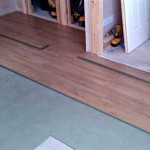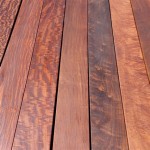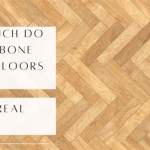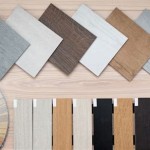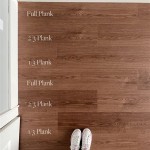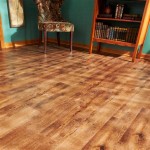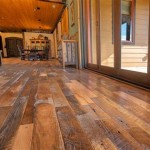How Much Do Hardwood Floors Cost Installed In San Jose, Costa Rica?
The cost of installing hardwood floors in San Jose, Costa Rica, is a multifaceted consideration involving materials, labor, and site-specific conditions. Unlike standardized pricing in some regions, estimating the expense accurately necessitates a thorough understanding of the local market dynamics and the variables influencing the final figure. Many factors contribute to the overall cost, and it is essential to consider each one individually before attempting to budget for a hardwood flooring project.
Hardwood flooring offers a blend of aesthetic appeal, durability, and potential increase in property value. However, the initial investment requires careful planning. This article aims to provide a comprehensive overview of the cost components involved in hardwood floor installation in San Jose, Costa Rica, to assist homeowners and developers in making informed decisions.
Understanding the nuances of pricing within the specific Costa Rican context is vital. Factors such as import duties on certain wood species, the availability of local hardwoods, and the prevalence of skilled flooring installers all impact the total expenditure. Furthermore, preparation of the subfloor and any demolition of existing flooring add to the overall project budget.
Material Costs: Wood Species and Quality
The selection of wood species is a primary driver of the total cost. Hardwood options range from locally sourced varieties to imported exotics, each exhibiting different characteristics and price points. Common choices include teak, known for its water resistance and durability, and various types of tropical hardwoods that are readily available in Costa Rica.
Imported hardwoods, which might include oak, maple, or cherry, often command a higher price due to shipping costs and import tariffs. The rarity and unique grain patterns of these woods can contribute to their desirability, but homeowners must weigh the aesthetic benefits against the increased expense.
The quality of the hardwood is equally significant. Factors such as the grade of the wood, its thickness, and the presence of knots or imperfections directly affect the price. Higher-grade woods, with minimal defects and uniform coloring, are typically more expensive but offer a more refined appearance and potentially extend the lifespan of the flooring.
Engineered hardwood, a composite material with a hardwood veneer over a plywood or fiberboard core, presents an alternative to solid hardwood. Engineered flooring can be more cost-effective and provides increased stability in environments with fluctuating humidity levels, a common consideration in the Costa Rican climate. The thickness of the hardwood veneer on engineered flooring plays a significant role in its cost; thicker veneers correlate with higher prices and improved durability.
The source of the wood is also crucial from a sustainability perspective. Opting for sustainably harvested wood, certified by organizations like the Forest Stewardship Council (FSC), can contribute to responsible forestry practices. While sustainably sourced wood may have a slightly higher initial cost, it aligns with environmental stewardship and can add long-term value to the property.
When budgeting for materials, it's prudent to add a contingency for waste. Cutting and fitting hardwood flooring often results in some unusable pieces. A general rule of thumb is to add 5-10% extra material to the total square footage required to account for this waste.
Labor Costs: Installation Expertise and Complexity
Labor constitutes a substantial portion of the overall hardwood floor installation cost. The expertise and reputation of the installation team are crucial factors influencing the price. Experienced installers possess the skills necessary to ensure a proper and long-lasting flooring installation, minimizing potential issues such as cupping, warping, or uneven surfaces.
The complexity of the installation also affects labor costs. Simple, rectangular rooms are generally less expensive to install than rooms with intricate layouts, curves, or custom designs. Installing hardwood on stairs or in areas requiring precise cuts around obstacles, such as pipes or cabinetry, adds to the time and effort involved.
The method of installation chosen also influences labor costs. Traditional nail-down installations, which are common for solid hardwood floors, require specialized tools and expertise. Glue-down installations, often used for engineered hardwood, necessitate careful surface preparation and the use of appropriate adhesives. Floating installations, where the flooring planks are connected to each other but not directly to the subfloor, can sometimes be less labor-intensive but may not be suitable for all applications.
It is always advisable to obtain multiple quotes from reputable flooring installers in San Jose. Comparing quotes allows homeowners to assess the prevailing market rates and identify installers who offer a balance of quality workmanship and competitive pricing. Checking references and reviewing online testimonials can provide valuable insights into the installer's past performance and customer satisfaction.
The prevailing wage rates for skilled laborers in Costa Rica can vary depending on experience and location. It is important to ensure that the installer is properly licensed and insured, protecting the homeowner from liability in case of accidents or property damage during the installation process.
Furthermore, clear communication with the installation team is essential. Discussing the project scope, timeline, and payment schedule upfront can help avoid misunderstandings and ensure a smooth installation process. A written contract outlining the terms of the agreement is highly recommended.
Subfloor Preparation and Additional Expenses
The condition of the subfloor is a critical determinant of the overall hardwood floor installation cost. A level and stable subfloor is essential for ensuring a proper and long-lasting flooring installation. If the existing subfloor is uneven, damaged, or requires significant repairs, additional costs will be incurred.
Subfloor preparation may involve leveling the surface with self-leveling compounds, repairing cracks or holes, replacing damaged sections, or adding a moisture barrier. Moisture is a significant concern in Costa Rica's humid climate, and a properly installed moisture barrier can help prevent warping and other moisture-related issues in the hardwood flooring.
The removal and disposal of existing flooring materials also contribute to the overall cost. Depending on the type of existing flooring, this process can be labor-intensive and may require specialized equipment. Disposal fees at local landfills may also need to be factored into the budget.
Additional expenses may include the cost of baseboards, moldings, and transitions. These finishing touches enhance the appearance of the flooring and provide a seamless transition between rooms or differing flooring types. The cost of these materials can vary depending on the style and material chosen.
Permits may be required for certain types of flooring installations, particularly in new construction or major renovations. Checking with local building authorities to determine permit requirements is essential to ensure compliance with regulations.
Finally, it is prudent to allocate a contingency fund for unforeseen expenses. Unexpected issues can arise during any construction project, and having a financial buffer can help address these issues without disrupting the overall budget. A contingency of 5-10% of the total project cost is generally recommended.
In conclusion, the cost of installing hardwood floors in San Jose, Costa Rica, is a complex calculation influenced by various factors. Understanding these factors and meticulously planning the project is crucial for achieving a successful and cost-effective outcome. While specific figures are difficult to provide without individual project details, a thorough assessment of material costs, labor expenses, subfloor preparation needs, and potential additional expenses will empower homeowners and developers to make informed decisions and budget effectively for their hardwood flooring projects.

Choosing The Right Hardwood For Your Home

Choosing The Right Hardwood For Your Home

Cost Of Construction In Costa Rica Remax Ocean Surf Sun

Hotel Majestad San José Updated S 2025

Holiday Inn Express San Jose Forum Costa Rica By Ihg José Updated S 2025

Hotel Majestad San José Updated S 2025

Hilton Garden Inn San Jose La Sabana Costa Rica José Updated S 2025

Which Type Of Flooring Is Best For Your Home Pulte

Costa Rica Guesthouse San José Updated S 2025

Hampton By Hilton San Jose Airport Costa Rica Alajuela Updated S 2025
See Also
